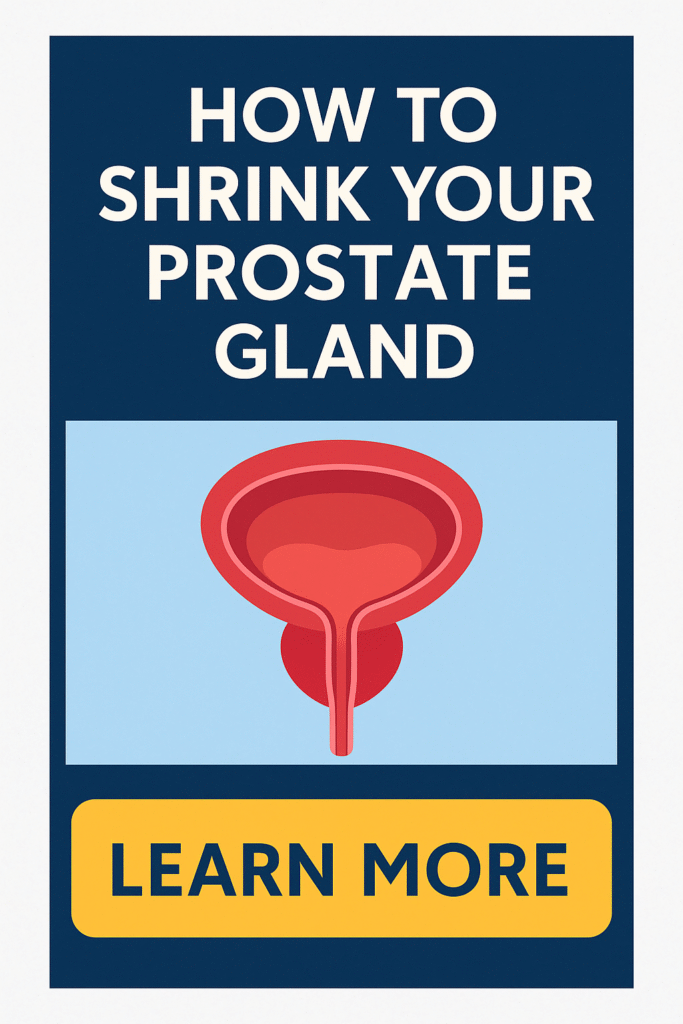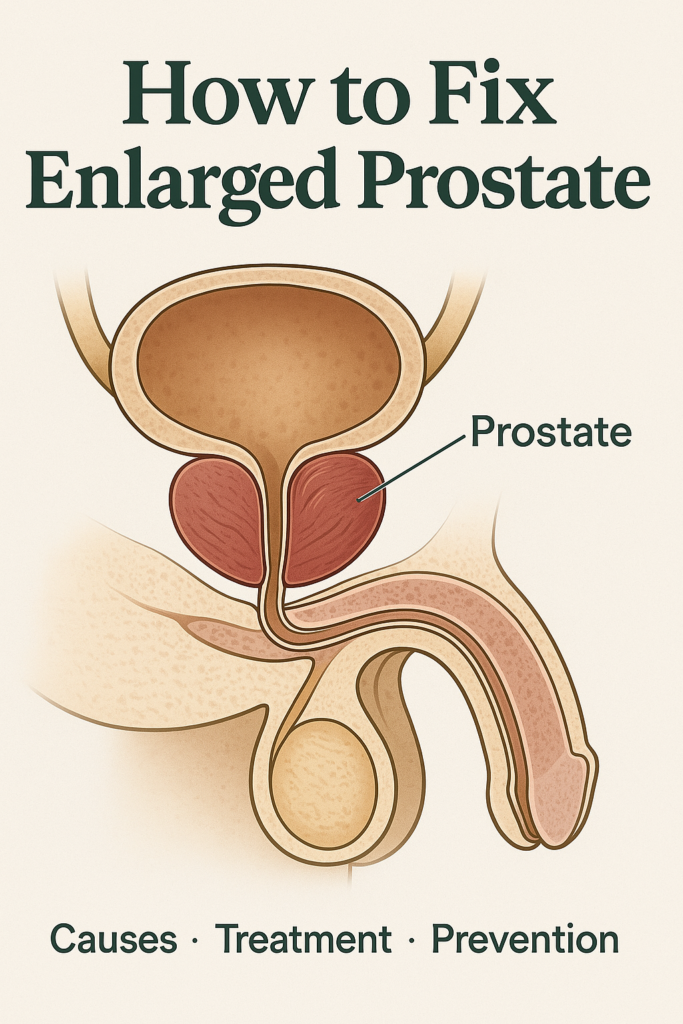Natural Remedies for Prostate Shrinkage
For many men dealing with an enlarged prostate, particularly benign prostatic hyperplasia (BPH), exploring natural remedies can offer some relief and potentially reduce the size of the prostate. Here are some well-researched methods and lifestyle changes:
1. Dietary Adjustments
Incorporate Vegetables and Fruits: A diet rich in fruits and vegetables can benefit prostate health. Cruciferous vegetables such as broccoli, cauliflower, and kale contain compounds that have been shown to support prostate health. Berries, which are high in antioxidants, can also be protective against prostate enlargement.
Reduce Red Meat and Dairy Intake: Consuming less red meat and full-fat dairy products can lower the risk of developing BPH. Consider substituting these with plant-based proteins like beans, legumes, and tofu.
Increase Intake of Healthy Fats: Omega-3 fatty acids found in fish like salmon, sardines, and mackerel may help reduce inflammation and support prostate health.
2. Herbal Supplements
Saw Palmetto: This is one of the most popular supplements for promoting prostate health. It is believed to help reduce symptoms of BPH and lower2. Herbal Supplements (Continued)
Saw Palmetto: This herbal remedy derives from the berries of the saw palmetto palm and is widely used to alleviate symptoms of BPH. Research suggests that saw palmetto can improve urinary function and reduce the urge to urinate frequently, a common issue with prostate enlargement.
Pygeum: Extracted from the bark of the African cherry tree, pygeum has long been used to treat urinary and prostate issues. It is known for its anti-inflammatory and antiedemic properties, which can help relieve symptoms associated with BPH, such as nighttime urination and weak urinary flow.
Beta-sitosterol: A plant-based compound found in fruits, vegetables, nuts, and seeds, beta-sitosterol may improve urinary symptoms and flow measures. It’s thought to work by inhibiting the production of dihydrotestosterone (DHT), a hormone linked to prostate growth.
Stinging Nettle: Often used in conjunction with saw palmetto, stinging nettle root can help alleviate lower urinary tract symptoms related to BPH. It contains compounds that may support hormonal balance and inflammation reduction.
Pumpkin Seed Oil: Rich in essential fatty acids, antioxidants, and zinc, pumpkin seed oil is believed to benefit prostate health. Some studies have shown that pumpkin seed oil can help reduce symptoms like frequent urination and nighttime urgency.
3. Regular Exercise
Engaging in regular physical activity can also play a crucial role in maintaining prostate health and potentially shrinking prostate size. Cardio exercises, pelvic floor exercises (Kegel exercises), and strength training are effective ways to improve circulation, manage weight, and reduce BPH symptoms.
4. Stress Management
Chronic stress can contribute to hormonal imbalances, potentially exacerbating prostate issues. Incorporating stress-reducing practices such as yoga, meditation, or tai chi can improve overall well-being and support prostate health.
Conclusion
While an enlarged prostate may be a part of aging for many men, making informed dietary and lifestyle changes, along with incorporating specific herbal supplements, can significantly aid in managing and potentially reducing prostate size. However, it’s crucial to consult with a healthcare provider before starting any natural remedy, especially if you are taking other medications or have existing health concerns. These adjustments can complement medical treatments and provide a holistic approach to maintaining prostate health.Recommended Exercises and Physical Activity for Prostate Health
Regular physical activity is a key component in maintaining prostate health and can be instrumental in managing symptoms of an enlarged prostate, also known as benign prostatic hyperplasia (BPH). Here are some exercises and activities that are particularly beneficial:
1. Aerobic Exercises
Aerobic activities, such as walking, jogging, cycling, or swimming, are highly effective in improving cardiovascular health and boosting overall bodily functions, including the urinary system. Engaging in at least 30 minutes of moderate aerobic exercise most days of the week can help maintain a healthy weight, alleviate BPH symptoms, and enhance prostate health.
2. Pelvic Floor Exercises (Kegel Exercises)
Kegel exercises are specifically designed to strengthen the pelvic floor muscles, which support the bladder and bowel and affect urinary function. These exercises can help improve urinary control and reduce the frequency of urination, a common issue associated with prostate enlargement. To perform Kegels:
- Identify the right muscles by stopping urination midstream; these are your pelvic floor muscles.
- Contract these muscles for a count of three seconds, then relax for three seconds.
- Aim to perform 10 repetitions, three times a day.
3. Resistance Training
Strength training exercises, including those that focus on large muscle groups, can improve muscle tone and support metabolic health. Whether through weight lifting, resistance bands, or body-weight exercises, including resistance training sessions at least two days a week can provide additional benefits to prostate health.
4. Yoga and Flexibility Exercises
Yoga and other flexibility exercises enhance circulation, reduce stress, and stimulate relaxation — factors that can indirectly benefit prostate health. Many yoga poses aimed at improving core strength and flexibility can also positively impact the pelvic floor and support overall well-being.
Key Tips:
- Start Slowly: If you’re new to exercise or returning after a period of inactivity, begin slowly and gradually increase intensity and duration.
- Consistency is Crucial: Consistent exercise is more beneficial than sporadic, intense workouts.
- Listen to Your Body: Proper form is important to avoid injury, and rest days are essential to allow muscles to recover.
Incorporating a mix of these exercises into your weekly routine not only promotes prostate health but also contributes to a healthier lifestyle overall. Always consult with a healthcare provider before starting a new exercise program, especially if you have pre-existing medical conditions.Natural Remedies vs. Medical Treatments for an Enlarged Prostate
Managing an enlarged prostate, medically known as benign prostatic hyperplasia (BPH), can involve a combination of lifestyle changes, natural remedies, and medical interventions. Each approach has its advantages and considerations, making it important to understand their differences to choose the best path for your health needs.
Natural Remedies
Advantages:
- Fewer Side Effects: Natural remedies often come with a lower risk of side effects compared to medication or surgical procedures. This makes them an appealing first-line approach for mild symptoms.
- Holistic Benefits: Practices like regular exercise, dietary changes, and stress management not only improve prostate health but also enhance overall well-being and reduce the risk of other lifestyle-related diseases.
- Accessibility: Many natural remedies, such as incorporating saw palmetto supplements or consuming foods rich in omega-3 fatty acids, are easily accessible and can be integrated into daily life.
Considerations:
- Efficacy Varies: The effectiveness of natural remedies can vary widely from person to person, and more scientific research is needed to fully understand their benefits.
- Slower Response: Natural approaches may take longer to produce noticeable improvements compared to medical treatments.
- Consultation Needed: It’s essential to consult with a healthcare professional before starting any natural remedy to ensure it’s safe, especially for those with other health conditions or those taking medications.
Medical Treatments
Advantages:
- Evidence-Based Efficacy: Medications such as alpha-blockers and 5-alpha-reductase inhibitors are clinically proven to effectively reduce prostate size and alleviate urinary symptoms.
- Rapid Symptom Relief: Medical treatments often provide faster relief from uncomfortable symptoms, making them suitable for more severe cases of BPH.
- Tailored Treatments: A range of options, including medications, minimally invasive therapies, and surgical procedures, can be customized based on the severity of symptoms and patient preferences.
Considerations:
- Potential Side Effects: Medical treatments can have side effects ranging from mild (dizziness, fatigue) to more significant (sexual dysfunction), which can affect quality of life.
- Regular Monitoring: Patients on medical treatments typically require ongoing monitoring and assessment to manage dosage and side effects effectively.
- Costs and Accessibility: Some medical treatments may involve higher costs or require access to specialized healthcare facilities.
Conclusion
Choosing between natural remedies and medical treatments for an enlarged prostate depends on individual symptoms, preferences, and health conditions. For those with mild symptoms, natural remedies may provide sufficient relief without the need for medication. However, in cases where symptoms significantly affect daily life, medical treatments may offer a quicker and more reliable solution. It is vital to consult with a healthcare provider to craft a tailored approach that aligns with personal health goals and circumstances.
In recent discussions around natural approaches to prostate health, a supplement called ProstaVive has been gaining significant attention.
Backed by an impressive rate of positive user feedback — with over 90% reporting noticeable improvements — ProstaVive supports the claims of its creators regarding the reduction of prostate-related symptoms.
We took a closer look at this supplement, evaluating its formulation, real customer experiences, strengths, and limitations. If you’re currently researching natural ways to manage prostate enlargement, we highly recommend reading our full analysis.





